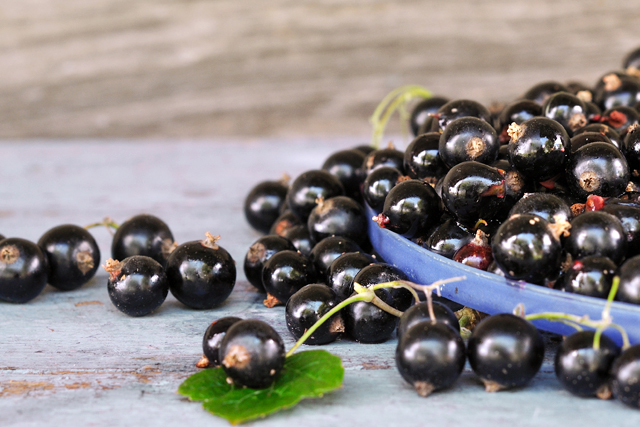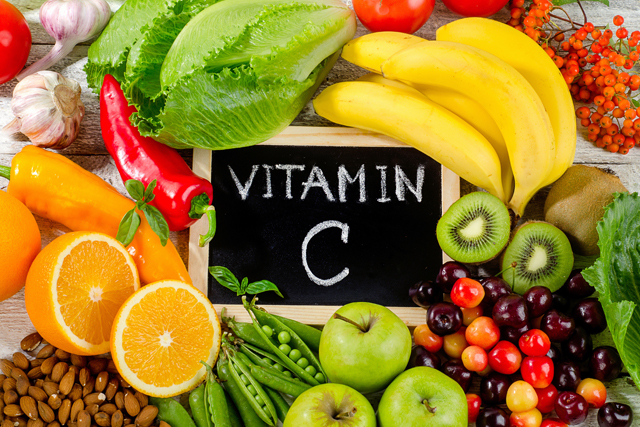Vitamin C benefits the normal growth, development, and repair of all body tissues. It’s also one of the safest and most effective super-nutrients with a significant number of health benefits.
However, our bodies don’t make vitamin C on their own, so we have to get our daily intake from foods and other outside sources.
The Health Benefits of Vitamin C

Vitamin C is perhaps best known as an immunity booster that fights the common cold and flu. While it may not be a cure, some studies show that taking vitamin C can lead to milder symptoms and help reduce your risk of developing further complications, including lung infections and pneumonia.
Interestingly, vitamin C is sensitive to stress. For this reason, it’s the first nutrient to be depleted in smokers, alcohotics, and persons with obesity. If you have a weakened immune system due to stress, getting your daily intake of vitamin C can be especially important. If you’re a smoker, you should even increase your daily intake by 35mg.
In a study published in the American Journal of Clinical Nutrition, researchers found a link between nutrient intake and skin aging in women. They learned that a higher intake of vitamin C was associated with better skin-aging appearance and fewer wrinkles.
Vitamin C is also involved in the formation of collagen, the absorption of iron, and wound healing. It’s known to reduce inflammation and help maintain strong bones, teeth, and cartilage, too. Because it’s an antioxidant, it also protects against damage from free radicals, pollutants, and toxic chemicals that can contribute to conditions like arthritis, cancer, and heart disease.
How Much Vitamin C Do Our Bodies Need?

The recommended dietary allowance of vitamin C is 75-90 mg a day for adults. This vitamin has a safe upper limit of 2,000 mg a day.
Because it’s a water-soluble vitamin, it needs to be taken regularly to prevent a shortage in the body. Excess amounts are not stored in the body. This can make it difficult to get sufficient Vitamin C benefits every day.
10 Ways to Get Vitamin C

1. Eat More Fruit
All fruits have some level of vitamin C in them. However, some are higher sources of this vitamin than others.
If you’re looking to increase your vitamin C intake, some of the best fruits to eat include:
- Grapefruit
- Oranges
- Cantaloupe
- Kiwi
- Mango
- Guava
- Pineapple
- Papaya
- Watermelon
- Berries (strawberries, cranberries, raspberries, and blueberries)
- Blackcurrants
2. Eat More Veggies
Just like fruit, all vegetables contain some vitamin C while some contain more than others.
Some of the best veggie sources for this nutrient include:
- Sweet potatoes
- White potatoes
- Tomatoes
- Spinach
- Turnip greens
- Cabbage
- Green and red peppers
- Broccoli
- Cauliflower
- Brussel sprouts
- Winter squash
3. Sneak in More Fruits and Vegetables
If you’re not one to grab an apple or carrot sticks as a snack, there are still ways to get more vitamin C in your diet. You can sneak in pureed or grated fruits and veggies to your meals without tasting much of a difference, such as pasta, chilis, soups, or muffins. You can also throw in a handful of dried fruit on top of your cereal or mixed it with your nuts for a snack.
4. Spice up Your Life
Even some herbs include vitamin C. For example, fresh thyme has 3x the amount of vitamin C found in oranges. Fresh parsley is also a source of vitamin C.
5. Store Fruits and Veggies Properly
Storing foods rich in vitamin C for too long or leaving them exposed to light can reduce the amount of vitamin C in them.
6. Eat Your Veggies Raw
When it comes to vitamin C, not all preparation methods are created equal. Microwaving and steaming foods can result in significant nutritional losses. Boiling also destroys the vitamins in vegetables, that’s why it’s best to eat your veggies raw and uncooked for maximum nutritional value.
Raw peppers, broccoli, and cauliflower with hummus make a great snack.
7. Drink Your Vitamin C
Many drinks are chock-full of vitamin C. Enjoy a glass of orange juice or tomato juice for an afternoon snack. Alternatively, make a smoothie with fruits and veggies rich in vitamin C.
8. Eat Fortified Foods
Some foods and beverages have been fortified with vitamin C to give you an extra boost, including many ready-to-eat kinds of cereal. Look at the product label to determine how much vitamin C is included.
9. Eat Fermented Vegetables
Fermented vegetables like kimchi (made from fermented cabbage) and sauerkraut are great options when it comes to getting your daily value of vitamin C.
10. Take a Vitamin C Supplement
It can be inconvenient to eat and drink your daily recommended number of vitamin C-rich fruits and vegetables every single day. That’s why taking a vitamin C supplement is a great idea. It’ll help you get your recommended levels of this critical vitamin without any worry. Excess vitamin C is secreted with your urine, so there’s no risk of overdose.
Take Control of Your Health, Naturally
Getting the recommended amount of vitamins and minerals every day can help ensure optimal health and wellness. In turn, this can reduce your risk of a variety of conditions and diseases and extend your lifespan. If you want to discover natural remedies for your health challenges, talk to a holistic doctor via telehealth using Heally.

